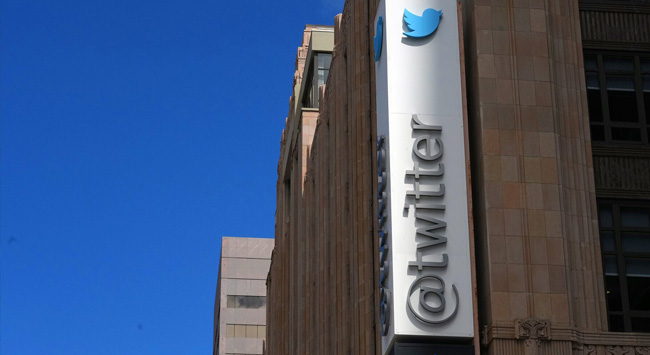New Delhi, Twitter and the Future of Regulating Online Content
Karthik Nachiappan, Shavinyaa Vijaykumarr
14 July 2022Summary
Twitter’s lawsuit against the Indian government to challenge and resist seemingly onerous content-blocking measures could mark a pivotal moment for global online content regulation.
The gloves are off. Twitter is resisting and defying the Indian government on online content regulation. On 5 July 2022, Twitter launched a legal challenge against the Indian government over New Delhi’s order to restrict and regulate content on the platform. Twitter alleges that the government has abused its power and violated the freedom of expression by ordering the removal of tweets and blocking accounts. The lawsuit, filed in the Karnataka High court, comes after India’s Ministry of Electronics and Information Technology threatened Twitter’s executives in India with criminal proceedings for non-compliance with existing orders. Twitter has currently blocked access to online content, as it seeks judicial review of the takedown orders which it deems unconstitutional.
The lawsuit is the latest salvo in the ongoing tussle between the Indian government and social media platforms over content regulation. Early last year, the government passed a new set of information technology (IT) rules that gave it more power to regulate online content on internet platforms, news and information providers. The new rules allow government authorities to order the erasure and takedown of online content on specific platforms within 36 hours with their failure to comply, resulting in criminal proceedings. In the lawsuit, Twitter has argued that the takedown orders issued under section 69A of the IT Act were “overbroad, arbitrary and disproportionate”. Additionally, Twitter holds that the takedown orders lacked the grounds of being “in the interest of sovereignty and integrity of India, defence of India, security of the State, friendly relations with foreign States or public order or for preventing incitement to the commission of any cognizable offence relating to above” as stipulated in the IT Act.
Twitter’s actions reveal a larger struggle that all social media companies face in the global contexts where their norms and rules clash with domestic politics and predilections. Till this particular challenge, Twitter complied with earlier requests, acquiescing to the Indian government’s decrees, taking down several posts from journalists and non-government organisation as per government orders. Some of these tweets were made by Mohammed Zubair, the co-founder of Indian news organisation, Alt-News, and Rana Ayyub, an investigative journalist who has openly criticised the Narendra Modi government. In 2021, Twitter complied with the order to remove The Caravan which it did momentarily before reinstating the magazine on its platform. These moves reflect the new normal for social media platforms like Twitter across the world – adhere to local laws that do not reflect or respect its norms or values or face severe scrutiny and possible retaliation.
The Indian government justified the revision of the IT rules, citing concerns over the spread of disinformation and abuse of social media platforms. New Delhi stated that the updated rules were “designed to empower ordinary users of social media” after comprehensive consultations with various stakeholders. Multiple social media platforms, which use end-to-end encryption technology, have criticised the requirement of traceability under the new IT rules, claiming it undermines user privacy. Additionally, they claim that implementing this requirement is ‘technically infeasible’ and could potentially overwhelm the grievance redressal mechanisms in place. New Delhi, however, defended the new IT rules by stating that these criticisms are “misplaced, exaggerated and disingenuous and [show a lack] of willingness to address the grievances of the users of these media platforms while using their data to earn revenues.”
Twitter’s challenge claims that the government has attempted to remove more tweets than the law authorises. The company also holds that Indian authorities have consistently failed to provide adequate justification for their demands, especially repeated takedown requests. The issue, however, is a much larger one, beyond the scope of single requests regarding posts. It is about power – the power to determine what online content is permissive and applicable and act accordingly, which belongs to the government, not Twitter officials. It is a test of freedom of expression in India, who sets the conditions for speech and who adheres, especially online.
This battle is also larger than Twitter and holds implications beyond India. New Delhi’s restrictive rules could set precedents beyond India, setting an example for developing countries battling BigTech platforms on how to curb their power relative to concerns around freedom of speech. Some countries like Nigeria have followed suit in drafting laws like the IT rules that expect platforms like Twitter to comply. Other countries are watching India to gauge if they should follow suit. That said, the battle is not just about social media platforms and governments. Citizens are key actors but their rights and interests are being given short shrift relative to the powers that be. Increasingly, citizens are left without adequate recourse to challenge take downs and censorship. Twitter and the Indian government have responsibilities to their users but those obligations appear to have lost traction in this fight for the internet’s future in India.
. . . . .
Dr Karthik Nachiappan is a Research Fellow at the Institute of South Asian Studies (ISAS), an autonomous research institute at the National University of Singapore (NUS). He can be contacted at isaskn@nus.edu.sg. Ms Shavinyaa Vijaykumarr is a Research Analyst at the same institute. She can be contacted at shav@nus.edu.sg. The authors bear full responsibility for the facts cited and opinions expressed in this paper.
Pic Credit: Twitter @carpe_diem0820
-
 More From :
More From :
-
 Tags :
Tags :
-
 Download PDF
Download PDF


